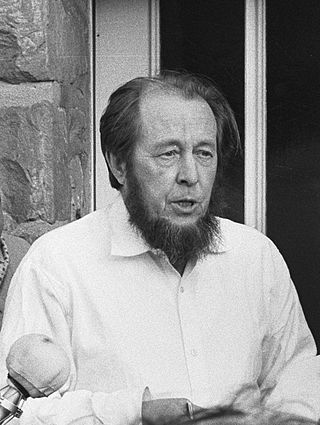
Ferit Orhan Pamuk is a Turkish novelist, screenwriter, academic, and recipient of the 2006 Nobel Prize in Literature. One of Turkey's most prominent novelists, he has sold over 13 million books in 63 languages, making him the country's best-selling writer.
Prose of the Republic of Turkey covers the "Turkish Prose" beginning with 1911 with the national literature movement.
Islamic literature is literature written by Muslim people, influenced by an Islamic cultural perspective, or literature that portrays Islam. It can be written in any language and portray any country or region. It includes many literary forms including adabs, a non-fiction form of Islamic advice literature, and various fictional literary genres.

My Name Is Red is a 1998 Turkish novel by writer Orhan Pamuk translated into English by Erdağ Göknar in 2001. The novel, concerning miniaturists in the Ottoman Empire of 1591, established Pamuk's international reputation and contributed to his reception of the Nobel Prize in Literature in 2006.
Mehmet Eroğlu is a Turkish novelist. His most known work is Issızlığın Ortasında.
Erdağ Göknar is a Turkish-American scholar, literary translator, and poet. He is an Associate Professor of Turkish and Middle Eastern Studies at Duke University and Director of the Duke University Middle East Studies Center.

The 2010 Nobel Prize in Literature was awarded the Peruvian writer Mario Vargas Llosa "for his cartography of structures of power and his trenchant images of the individual's resistance, revolt, and defeat." The prize was announced by the Swedish Academy on 7 October 2010. He is the first Nobel laureate in Literature from Peru and the fifth Latin American to become one after 1982 Colombian laureate Gabriel García Márquez and 1971 Chilean laureate Pablo Neruda.

The 2017 Nobel Prize in Literature was awarded to the British novelist Kazuo Ishiguro "who, in novels of great emotional force, has uncovered the abyss beneath our illusory sense of connection with the world." The prize was announced by the Swedish Academy on 5 October 2017.

The 1938 Nobel Prize in Literature was awarded to the American author Pearl S. Buck (1892–1973) "for her rich and truly epic descriptions of peasant life in China and for her biographical masterpieces." Buck was the first female American to be awarded the Nobel Prize and the third American recipient following Eugene O'Neill in 1936 and Sinclair Lewis in 1930. She was also the fourth woman to receive the prize.

The 1970 Nobel Prize in Literature was awarded to the Russian novelist Aleksandr Solzhenitsyn (1918–2008) "for the ethical force with which he has pursued the indispensable traditions of Russian literature." For political reasons he would not receive the prize until 1974. Solzhenitsyn is the fourth Russian recipient of the prize after Ivan Bunin in 1933, Boris Pasternak in 1958 and Mikhail Sholokhov in 1965.

The 1972 Nobel Prize in Literature was awarded to the German author Heinrich Böll (1917–1985) "for his writing which through its combination of a broad perspective on his time and a sensitive skill in characterization has contributed to a renewal of German literature." Böll is the fifth German author to be recipient of the prize.

The 2011 Nobel Prize in Literature was awarded to the Swedish poet Tomas Tranströmer (1931–2015) "because, through his condensed, translucent images, he gives us fresh access to reality." He is the seventh Swedish author to become a recipient of the prize after Harry Martinson and Eyvind Johnson who were jointly awarded in 1974.

The 2008 Nobel Prize in Literature was awarded to the French novelist Jean-Marie Gustave Le Clézio, better known with his pen name J. M. G. Le Clézio, as an "author of new departures, poetic adventure and sensual ecstasy, explorer of a humanity beyond and below the reigning civilization." He became the 14th French-language author to receive the Nobel Prize for Literature after Claude Simon in 1985 and was followed later by Patrick Modiano in 2014.

The 1996 Nobel Prize in Literature was awarded to the Polish poet Wisława Szymborska (1923–2012) "for poetry that with ironic precision allows the historical and biological context to come to light in fragments of human reality." Szymborska is the 9th female recipient and the 5th Nobel laureate from Poland after Czesław Miłosz in 1980.

The 1993 Nobel Prize in Literature was awarded to the African-American novelist Toni Morrison (1931–2019) "who in novels characterized by visionary force and poetic import, gives life to an essential aspect of American reality." Morrison was awarded before the third novel of the Beloved Trilogy was published. She became the first black woman of any nationality and the second American woman to win the prize since Pearl S. Buck in 1938. She is also the 8th woman to receive the prize.

The 2003 Nobel Prize in Literature was awarded to the South African novelist John Maxwell Coetzee, better known simply as J. M. Coetzee, "who in innumerable guises portrays the surprising involvement of the outsider." He is the fourth African writer to be so honoured and the second South African after Nadine Gordimer in 1991.

The 1994 Nobel Prize in Literature was awarded to the Japanese novelist Kenzaburō Ōe (1935–2023) "who with poetic force creates an imagined world, where life and myth condense to form a disconcerting picture of the human predicament today." He is the second Japanese Nobel laureate in Literature after Yasunari Kawabata was awarded in 1968.

The 2000 Nobel Prize in Literature was awarded to the Chinese émigré writer Gao Xingjian "for an æuvre of universal validity, bitter insights and linguistic ingenuity, which has opened new paths for the Chinese novel and drama." He is the first Chinese recipient of the prize followed by Mo Yan in 2012.

The 1985 Nobel Prize in Literature was awarded to the French novelist Claude Simon "who in his novel combines the poet's and the painter's creativeness with a deepened awareness of time in the depiction of the human condition".
















